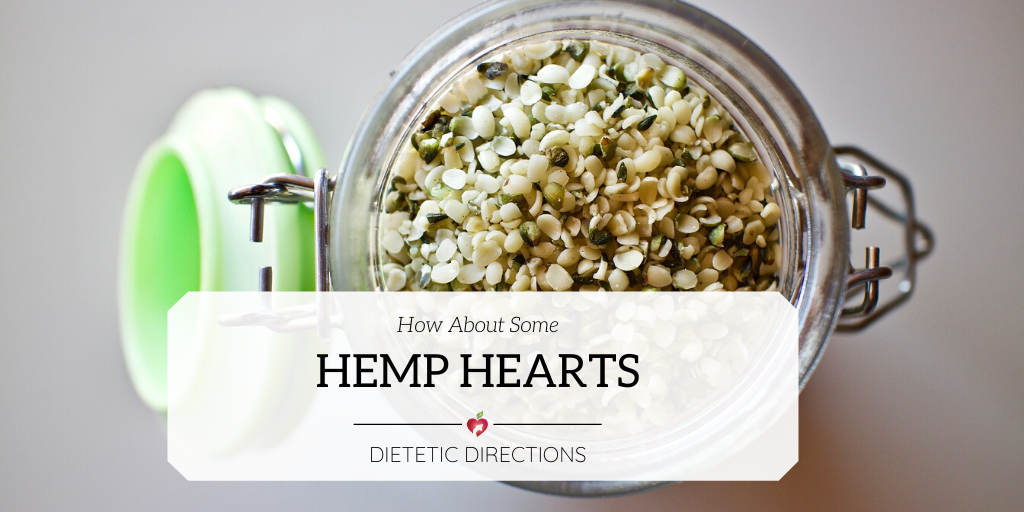
How About Some Hemp Hearts?
The concept of a ‘super-food’ is an emerging phenomenon and encompasses foods with an extraordinary nutritional profile along with associated health benefits. Hemp is considered one of the world’s most nutritious plants and definitely a ‘super-food’ you want in your pantry!
What is Hemp?
Hemp is a tall plant; in fact, the hemp plant can grow up to 18 feet high! Hemp has a strong, fibrous stalk and tiny, edible seeds known as hemp seeds or shelled as hemp hearts.It can be eaten whole, pressed into an edible oil, or ground into flour for baking. Hemp has been cultivated as food for over 5,000 years and is a staple in Asian diets.
Hemp is a distinct variety of the Cannabis plant but do not be alarmed, hemp is not a drug! A similar comparison would be between poppy seeds and a minuscule (sometimes zero) amount of opium. Therefore, both poppy seeds and hemp seeds are not considered a drug nor are they hazardous to our health. In fact, as you will see, it is quite the opposite!
Nutritional Benefit of Hemp:
The major nutritional benefit of hemp seeds is that they are a ‘complete protein’, meaning that they contain all of your essential amino acids (like meat). Therefore, this is the perfect vegetarian, vegan or raw-food protein alternative! Soy protein is the only plant-based source that has more protein than hemp.
Hemp also contains polyunsaturated (cholesterol lowering) fatty acids. In fact, the World Health Organization (WHO) claims that an ideal omega-6 to omega-3 ratio is 4:1; hemp has a ratio of 3.75:1. This balance provides the body with what it needs for optimal skin health, energy production, nervous system function, brain development, heart health, and immune system support.
Here are the highlighted benefits of hemp seeds:
- Contains all 9 essential amino acids (known as a complete protein)
- Omega 3 + Omega 6 fatty acids (heart health, immunity and anti-inflammatory)
- Magnesium (70% of daily requirement)
- Iron (30% if daily requirement)
- Source of fibre (3g per 3Tbsp severing)
- Good source of phosphorous (vital for metabolism, our nervous system, hormone balance, energy)
- Very low in sodium (1% of daily value)
- Good source of folate (important for women of childbearing age, body cell functioning)
- Vitamin E (antioxidant containing)
- Good source of potassium (heart health, builds muscle, electrolyte)
- Phytosterols (cholesterol lowering)
How to Find and Use Hemp Seeds?
You can find shelled hemp seeds (aka hemp hearts) at your local grocery store in the health food section. You can also find hemp flour at bulk food stores. To incorporate hemp seeds into your diet, try sprinkling them on top of your yogurt, try topping your salads with them or even baking with hemp flour. You can stir-fry in a little hemp oil or top hemp hearts on top of Asian entrees instead of using sesame seeds.
Where can I buy hemp seeds? Share on XBottom Line:
Hemp hearts come from the hemp plant, and are similar in taste and texture to most seeds and nuts. Add hemp seeds to your diet to lower cholesterol, to reduce the risk of heart disease and to promote satiety or the feeling of fullness. However, per serving, hemp hearts contain more protein and essential fatty acids than most seeds and nuts, and are thus, a healthy and nutritious protein alternative.



